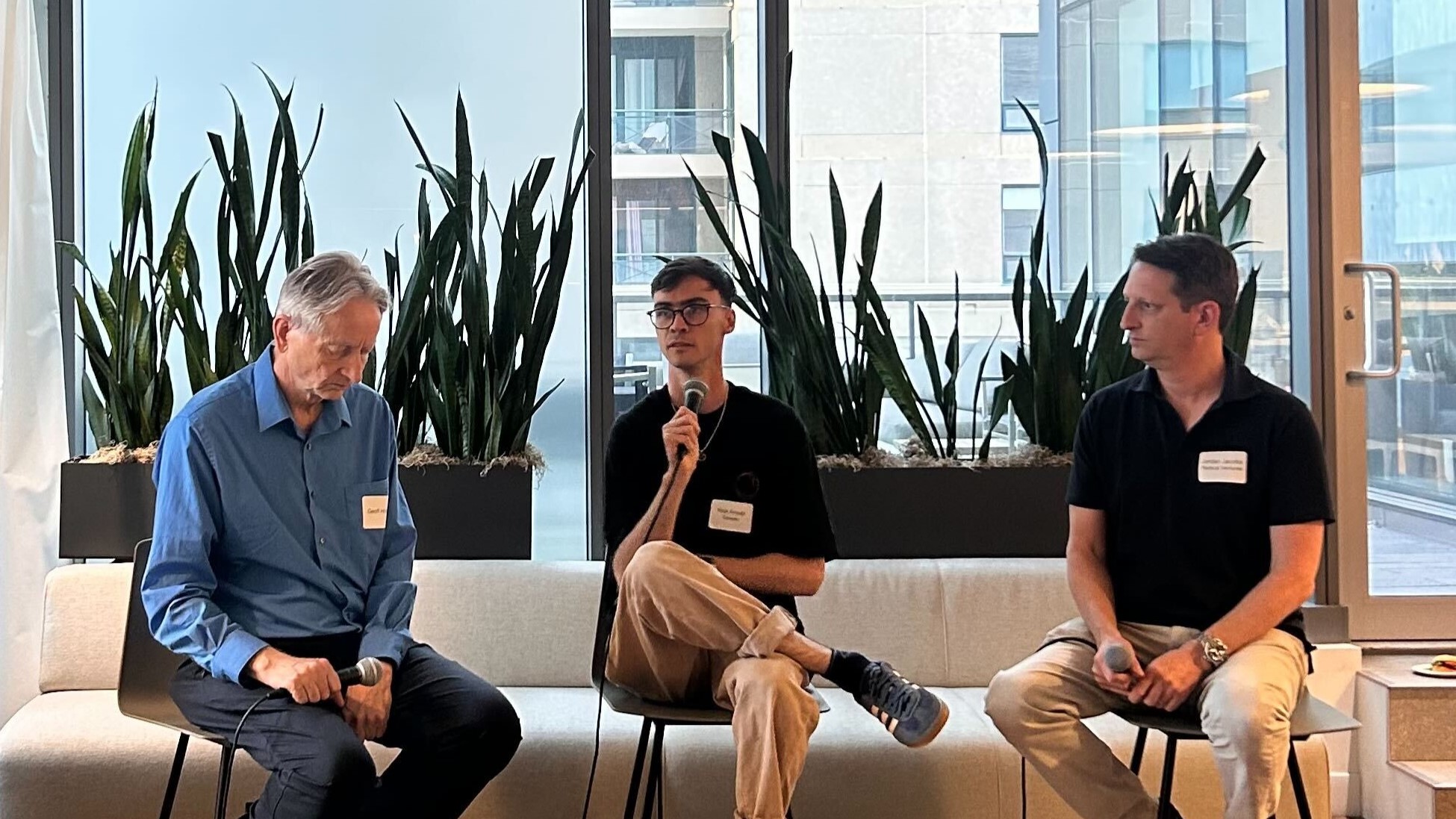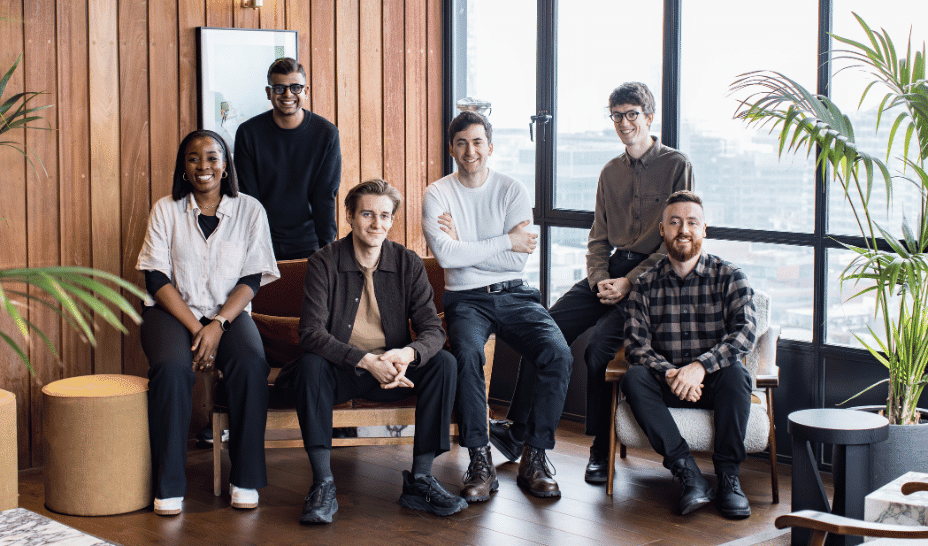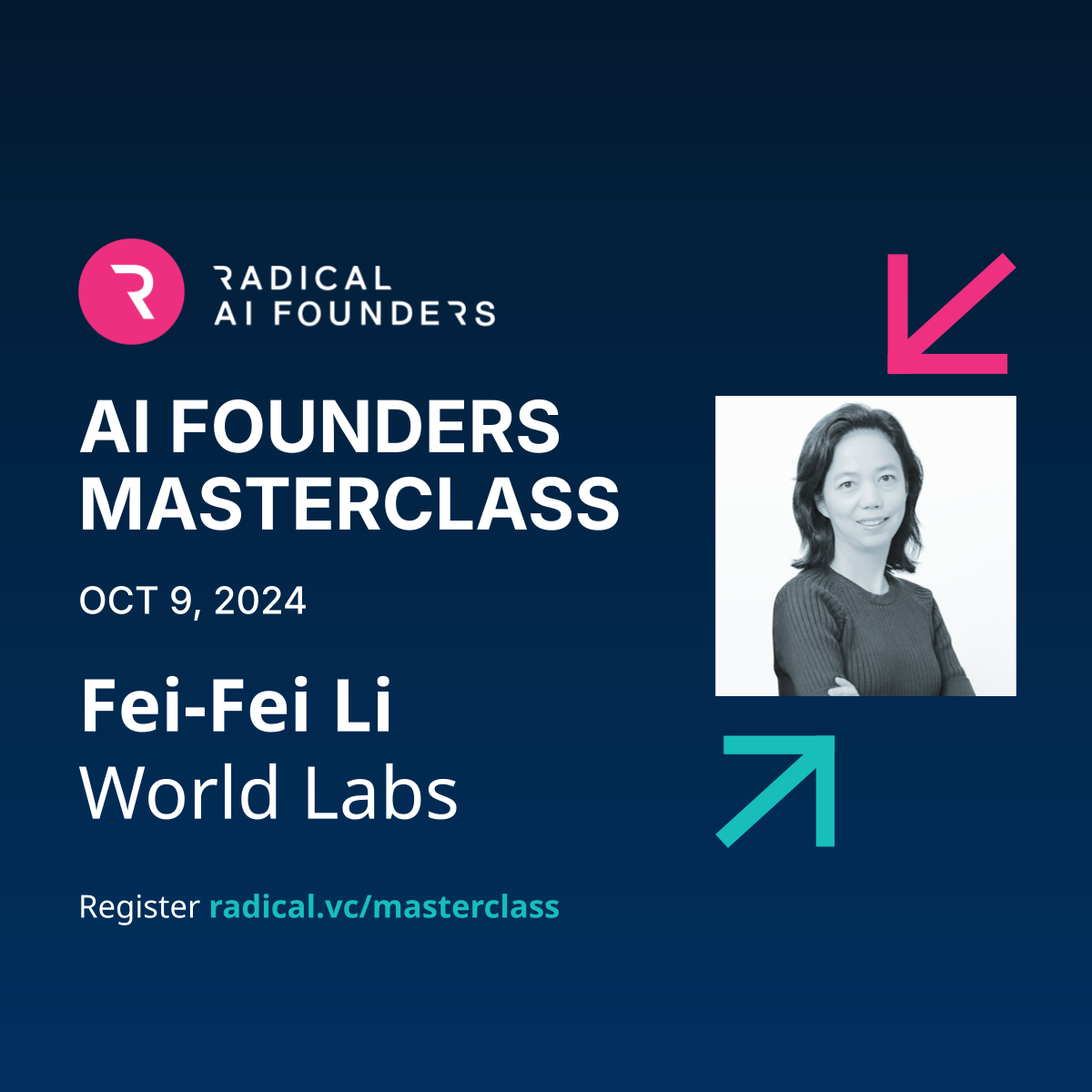As we turn the page on 2023, we are delighted to share our key Radical features of the past year, exploring AI’s impact on technology, the economy, politics and culture.
Jordan Jacobs – AI eats software
Software – the infrastructure of 1s and 0s that has powered the digital age and created trillions of dollars in value and productivity – is at the beginning of a major upgrade cycle. Over the next decade, virtually every bit of software will be replaced by Artificial Intelligence (AI). The implications for our world and the global economy are profound.
Radical Ventures Managing Partner and Co-Founder Jordan Jacobs comments on AI’s role in shaping future technologies and the economy. Read Jordan’s thoughts here.
Dominic Barton on AI’s opportunity
This year, Dominic Barton joined Radical Ventures as a partner, advising portfolio companies on commercialization and go-to-market strategy. Dominic is also Chair of Rio Tinto and the former Canadian Ambassador to China. He was the Global Managing Partner at McKinsey & Company from 2009 to 2018. You can read more about Dominic’s move to Radical in the Financial Times. In this Radical Reads feature, Dominic points to AI as one of our most powerful tools to address the challenges our society faces. Read the article.
The pace of innovation in AI this year was blistering. Between open-source momentum, autonomous agent hype, Open AI’s leadership saga, and Google’s AI research restructuring — just to name a few — there were a lot of moving parts. In what felt like an unrelenting AI news cycle, Radical Ventures investor Molly Welch selected ten charts to help readers take a step back and look at the big picture and the current state of AI. Read Molly’s thoughts here.
Geoffrey Hinton – Exclusive Q&A on the Future of AI
Geoffrey Hinton is often called the Godfather of Artificial Intelligence. He has been at the forefront of AI for over fifty years, creating the core algorithm that powers the training of artificial neural networks which underpins today’s advances in AI.
This year, Geoff sounded the alarm about the potential dangers of AI and resigned from his role at Google to speak more freely about this topic. In this exclusive Q&A with Radical Partner Aaron Brindle, we dove into Geoff’s views on the potential of AI to benefit society, how his ongoing research might address these concerns, and advice for researchers looking for guidance on how to responsibly pursue their work.
Geoff is an investor in Radical Ventures, and a co-founder of the Vector Institute for Artificial Intelligence alongside Radical Ventures partners Jordan Jacobs, Tomi Poutanen and Ed Clark. Read the interview.
Cracking the AI Chip Shortage – Strategies and Opportunities
Behind the recent advances in AI are high-performance processor chips. The global supply of these chips is heavily constrained, driving up costs and favouring global hyper-scalers, well funded startups, or large enterprise incumbents with the purchasing power to secure access to large amounts of compute power.
Radical Ventures Partner David Katz was featured in a Financial Times article on the state of the AI chip market and the dynamics facing challengers. David alongside Radical Ventures Investor Daniel Mulet shared their thoughts on how the current AI chip market is impacting startups. Read David and Daniel’s feature here.
Approaching the Future: Geoffrey Hinton and Fei-Fei Li
The Radical AI Founders Masterclass kicked off this year with a talk between AI luminaries, Geoffrey Hinton and Fei-Fei Li, hosted and moderated by Radical’s Jordan Jacobs. The discussion was held in front of a live audience of hundreds at the University of Toronto and thousands more who watched online.
The conversation marked the first time Hinton and Li have shared a stage, and featured a dramatic recounting of the 2012 ImageNet competition when their professional careers first intersected. It was a pivotal moment in the history of AI, when neural networks proved capable of ‘solving’ computer vision. Watch the recording of their conversation.
The Next Frontier for Large Language Models is Biology
Large language models like GPT-4 have taken the world by storm thanks to their astonishing command of natural language. Yet the most significant long-term opportunity for LLMs will entail an entirely different type of language: the language of biology.
One striking theme has emerged from the long march of research progress across biochemistry, molecular biology and genetics over the past century: it turns out that biology is a decipherable, programmable and, in some ways, even digital system.
Radical Ventures Partner Rob Toews published an article in Forbes this year discussing applications of large language models in the life sciences. Read the article.
AI in the classroom – the kids are alright
The question of generative AI in the classroom consistently surfaced as a theme this year. Radical Ventures Senior Director of Velocity Leah Morris discussed the history of technology in the classroom and offered some key questions for parents and students to be asking decision-makers in educational settings.
In brief, high-quality generative AI tools are undeniably a game-changer, but classroom pedagogy has been shifting for some time. Over the last three generations, the required skills to participate in academia have evolved from search to summary, and now toward critical thinking, contributing to a field of study through multiple outputs. Read the feature in full.
Underwriting Responsible AI: Venture capital needs a framework for AI investing
The rapid pace of advances is increasing the urgency to ensure that AI systems are developed and deployed safely. Just as venture capital played a critical role in spurring the current AI boom, the investment decisions made in the boardrooms of VC offices today will influence the AI technologies that shape future generations. While there are voices arguing that “trust and safety” measures may impede progress, we believe that the venture capital industry – the underwriters of tomorrow’s innovations – must approach investments in AI with a sense of shared responsibility.
To that end, Radical Ventures, the world’s largest venture fund dedicated exclusively to AI, released an open-source resource this year aimed at fostering the safe and responsible application of AI. Based on the same resources Radical uses as part of its internal diligence and deliberation processes, Radical’s Responsible AI for Startups (RAIS) framework is now accessible to the public and the broader venture capital community, as a practical tool to help VCs assess early-stage AI companies and technologies. Learn more about our RAIS framework.
Fei-Fei Li’s Inspiring Memoir about Her Remarkable Life and the Rise of AI
Radical’s Scientific Partner Fei-Fei Li’s memoir, The Worlds I See: Curiosity, Exploration, and Discovery at the Dawn of AI, was released this year.
It is a first-hand look at modern AI’s rapid development, written from the perspective of a central figure in the development of artificial intelligence. The story of AI and its breakthrough moment in 2012, when Geoffrey Hinton and two of his students won the ImageNet competition Fei-Fei created, is interwoven with Fei-Fei’s journey.
From a new immigrant who came to the US as a teen without English, money or relationships beyond her parents, Fei-Fei emerges as a pioneering figure in modern AI, which includes founding and becoming Co-Director of Stanford’s Human-Centered AI Institute, and advisor to the White House and leaders in industry. Read Jordan Jacobs’ account of her memoir.

Radical Reads is edited by Ebin Tomy.





